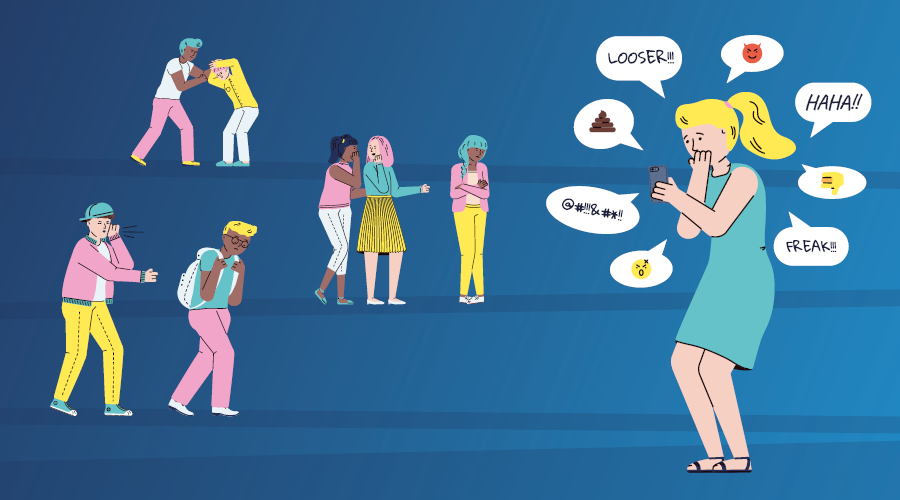Cyberbullying

Bullying and Cyberbullying – Together, We Create a Safe Environment!
It is crucial to fight against bullying and cyberbullying to ensure a safe and respectful environment for everyone. Every child and teenager has the right to feel comfortable and protected, both at school and online.
Why is this so important?
Collective responsibility
Bullying is not just an individual problem; it affects the entire community. By working together, we can promote a culture of respect and support that protects everyone. The involvement of parents, teachers, and students is crucial in putting an end to bullying.Empathy as the key
Empathy is one of the most important qualities to foster. By putting ourselves in others’ shoes, we can better understand their feelings and challenges. Empathy not only helps victims but also encourages perpetrators to reflect on their behavior and change it. When students learn to listen to and support each other, they create an environment where bullying has no place.Creating a positive climate
By actively addressing bullying and cyberbullying, we contribute to building a positive school environment where friendship, unity, and mutual support are encouraged. Everyone should feel safe to be themselves without fear of exclusion or harassment.Terms related to cyberbullying
- Flaming
- Posting insulting comments to intentionally provoke or hurt someone, often in chats or online forums.
- Doxxing
- Sharing someone’s private information like their address or phone number online without permission, to upset or shame them.
- Outing
- Publishing someone’s personal or secret information without their consent, making them feel ashamed or sad.
- Impersonation (Identity theft)
- Pretending to be someone else to annoy them or damage their reputation.
- Cyberstalking
- Constantly monitoring or harassing someone online, making them feel pressured or scared.
- Trolling
- Posting insulting or provocative comments just to trigger strong reactions from others.
- Exclusion
- Intentionally excluding someone from online groups or chats to make them feel left out.
- Sexting and sexual harassment
- Sending inappropriate or unwanted messages or images with sexual content.
- Denigration
- Spreading lies or rumors about someone to harm their reputation or make them look bad.
- Masquerading
- Hiding behind anonymous or fake profiles to annoy or insult others.

 Books about this subject
Books about this subject